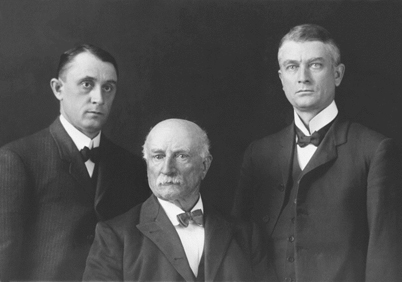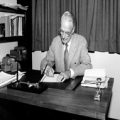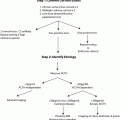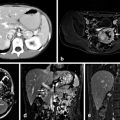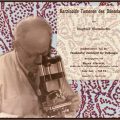Dr. Charlie in scrubs
To have a continuing, tangible influence on the daily activities of a large medical institution, a century and a half after its origin, and 75 years after his own death, is a remarkable accomplishment.
Thus it was, and is, for C. H. (Charlie) Mayo. A perusal of his many wise aphorisms may give us some insight into the soul and spirit of this unique surgeon , affectionately known as Dr. Charlie [1–5].
Carry out the two fundamental surgical requirements: see what you are doing and leave a dry field.
He was well renowned for his surgical dexterity and amazingly broad surgical practice which ranged from general, to urologic, to orthopedic, and even to neurosurgery. In 1937, his brother (Dr William Mayo) in an interview said, “Charlie had the widest scope of surgical ability of any man I have ever known. My field was restricted from the beginning to a few areas of the body, abdomen-pelvis-kidney, which I developed one by one. Charlie seemed to have the ability to open up all fields.” Indeed, Dr. Charlie’s gift for excelling within all surgical disciplines lay in his tenacity for assuring that simplistic fundamental surgical principles were carried out: expose the diseased organ clearly, and maximize hemostasis with a meticulous technique. Although he considered himself a “simple surgeon,” his adherence to these two surgical principles led him to a legendary career in surgery.
Once you start studying medicine, you’ll never get through with it.
Dr. Charlie had a lifelong passion for learning—both he and his brother assiduously set aside time each evening for scientific reading. If they were forced to miss their hour of reading for whatever reason, they made sure that they made up this “missed time” by doubling up on future sessions.
More good would come to our country through tongue control than birth control.
In the operating room, hospital, and clinic, idle chatter was frowned upon by the Mayo brothers . They were the same at home; precise and concise use of the spoken language was deeply admired. This was their manner of speech, and especially so for Dr. Charlie.
After all, the only thing a man can finally take with him is the love and respect of his fellow citizens. The more one forgets himself, the more the love, esteem and approbation of his fellow citizens.
Dr. Charlie loved his fellow man/woman. He was a loving husband, a gentle, but strict father, and a respected yet distant educator. All the while, he possessed a great sense of humor—what a unique combination of human traits.
What then was the pathway that led Dr. Charlie from humble beginnings to leaving an enduring legacy on what is today the largest, integrated, not-for-profit, private multispecialty medical practice in the world?
Charles Horace Mayo (CHM) was born in Rochester, Minnesota, in 1865 and died in Chicago, Illinois, in 1939. He was the younger son of Dr. William Worrall Mayo (Dr. WW) and Louise Abigail Wright Mayo. Dr. WW, who had emigrated from Manchester, England, in 1846, opened a solo medical practice in Rochester, Minnesota, in January of 1864. He was subsequently joined in practice by his eldest son William in 1883. The seed of Mayo Clinic was germinating.
CHM graduated with his medical degree from the Chicago Medical College in 1888 after 3 years of study before joining his father and brother in practice (Fig. 1).
